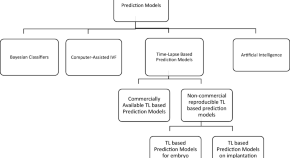
Collection
Unlocking the potential of artificial intelligence (AI) in reproductive medicine: The JARG collection on assisted reproductive technology (ART) and machine learning
- Submission status
- Open
- Open for submission from
- 17 July 2023
- Submission deadline
- Ongoing
This collection of papers brings together the latest, cutting-edge research and delves into the promising role of Artificial Intelligence (AI) in shaping the future of reproductive medicine. With an aim to inspire and ignite innovation, this collection invites authors to contribute their own original and cutting-edge research, while providing readers with an exciting array of advancements in this rapidly evolving field.
Artificial intelligence surrounds us in daily living. But in an indirect, non-clinical and arm’s length way. And as such a devil-may-care attitude abides. If it works, who cares about details? (Most of us can't tell the difference between Python, Java, or C++ and frankly don’t care). It’s simply not part of the daily to-and-fro of delivering assisted reproductive technologies (ART). But evidence is mounting that AI can provide additional horsepower to the engine of decision making in ART. And this migration of AI into the front yard of clinical care should prompt us all to sit up, pay attention and take notes. Like it or not, AI has arrived on the ART scene. New AI tools are rapidly emerging in ART but without an easy-to-read user’s manual. As with all things new and novel, education is the foundation to make smart and well-informed decisions and avoid making premature grab-and-go choices in response to a hot topic pitch that we may live to regret.
As highlighted in this collection, the potential of AI in the reproductive space is spectacular, enabling more accurate predictions of pregnancy outcomes, optimized embryo selection, and personalized treatment plans based on individual characteristics and genetic profiles. Harnessing the power of AI, reproductive medicine is undergoing a paradigm shift, redefining the boundaries of what is possible. Machine learning algorithms have paved the way for improved diagnosis, treatment, and patient care. By leveraging vast amounts of data, AI systems can identify patterns, make predictions, and provide tailored recommendations to healthcare providers and patients.
However, as always, progress also comes with perils. Our field is ripe with examples of the principle “implementation before validation” where the enthusiasm for the utilization of new technologies exceeds the appreciation for potential pitfalls and risks. This phenomenon appears to be almost inevitable in the case of artificial intelligence (AI) assisted reproductive technology (ART). There is no longer any doubt regarding the integral role that AI will play in ART. While the “if” question regarding implementation is answered, we can still control the “how.” Are we outsourcing clinical care to a computer? How do AI tools impact the quintessentially clinical process that, until now, was solely within the purview of providers? Solid, high-quality prospective studies are needed to demonstrate improved outcomes and ideally, cost reduction. The crossroad between biology and informatics needs to be traversed by academics and experienced clinicians, as well as statistical experts, and guarded by solid peer review, rather than occupied entirely by commercial interests. Data integrity and safety are paramount. Furthermore, the care of our patients should continue to be holistic, empathetic, and not de-humanized. AI should not just provide fancy gadgets for to the privileged few, but advantages to the reproductive patient collective as a whole.
This collection showcases a wide range of papers that investigate the profound impact of AI on fertility-related topics, including assisted reproductive technologies, reproductive health monitoring, predictive modeling, and personalized medicine. By featuring a diverse range of interdisciplinary research, this collection serves as a platform for scientists, clinicians, and engineers to share their insights, innovations, and future visions. Through collaboration and knowledge exchange, we aspire to accelerate the progress of AI in reproductive medicine, ultimately improving outcomes for people struggling with infertility and reproductive health challenges.
Join us in this stimulating journey through the cutting-edge science of AI and fertility. Explore the remarkable breakthroughs, be inspired by the endless possibilities, and contribute your own original research to shape the future of reproductive medicine. Together, we can push the boundaries of science, technology, and human potential to revolutionize the field of fertility and bring hope to millions around the world. Read on and make your own decisions about how these new tools can positively impact what we do as individual practices and as a specialty. As we enter this new era, in awe of the rapid breakthroughs occurring in front of our eyes, we continue to remind ourselves of the ultimate goal of our work: healthy babies.
Editors
-
Carol Lynn Curchoe
Carol Lynn Curchoe, PhD, HCLD (ABB) is a reproductive physiologist. Her PhD. research focused on animal cloning and her postdoctoral fellowship focused on human embryonic stem cell research. She is currently the Director of Medical Affairs at AIVF, and an IVF laboratory director. She is the founder of ART Compass (AIVF), www.artcompass.io, a software platform for IVF lab management and staff related quality assurance, and the author of numerous peer reviewed research publications and one book, “The Thin Pink Line: Regulating Reproduction”(Nova Science publishers, 2021).
-
Gerard Letterie
Gerard Letterie is a board-certified reproductive endocrinologist and partner at Seattle Reproductive Medicine, Seattle WA. He completed his training in obstetrics and gynecology at Walter Reed Hospital in Washington DC and a fellowship in REI at NIH. He has served on various educational committees including a position as an oral examiner for the ABOG. He is an ad hoc reviewer for journals in healthcare and a member of the Editorial Board of JARG. His interests include risk management and medical liability and computers/AI in clinical care and image analysis.
-
Alexander Quaas
Alex Quaas is Founding Partner at Shady Grove Fertility in San Diego (CA). After medical school in UK, residency at Harvard and fellowship at USC, he completed a Master’s program in Clinical & Translational Science and the ASRM CREST scholarship at the University of Oklahoma. In 2021-2023 he was Division Director of in the Dept. of Obstetrics and Gynecology at the University of Basel. Current President-Elect of the Pacific Coast Reproductive Society. He is very active in teaching & research in REI, his areas of interest include international differences in the provision of fertility care and the the use of AI in ART
Articles (31 in this collection)
-

-
Unlocking the potential of artificial intelligence (AI) in reproductive medicine: the JARG collection on assisted reproductive technology (ART) and machine learning
Authors
- Carol Lynn Curchoe
- Gerard S. Letterie
- Alexander M. Quaas
- Content type: Commentary
- Published: 22 July 2023
- Pages: 2079 - 2080
-
Comparing performance between clinics of an embryo evaluation algorithm based on time-lapse images and machine learning
Authors (first, second and last of 12)
- Martin N. Johansen
- Erik T. Parner
- Jørgen Berntsen
- Content type: Assisted Reproduction Technologies
- Open Access
- Published: 10 July 2023
- Pages: 2129 - 2137
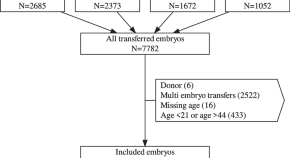
-
Deep technology for the optimization of cryostorage
Authors
- Kathryn J. Go
- Cynthia Hudson
- Content type: Technological Innovations
- Published: 12 May 2023
- Pages: 1829 - 1834
-
The making and managing of a niche for artificial intelligence in reproductive medicine
Authors
- David F. Albertini
- Content type: Commentary
- Published: 14 February 2023
- Pages: 211 - 212
-
The use of voting ensembles to improve the accuracy of deep neural networks as a non-invasive method to predict embryo ploidy status
Authors (first, second and last of 9)
- Victoria S. Jiang
- Hemanth Kandula
- Hadi Shafiee
- Content type: Assisted Reproduction Technologies
- Published: 14 January 2023
- Pages: 301 - 308
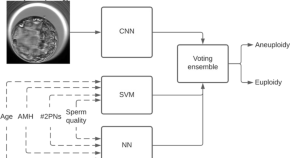
-
Assuring quality in assisted reproduction laboratories: assessing the performance of ART Compass — a digital art staff management platform
Authors (first, second and last of 10)
- Carol Lynn Curchoe
- Charles Bormann
- Dean Morbeck
- Content type: Assisted Reproduction Technologies
- Published: 13 January 2023
- Pages: 265 - 278

-
New frontiers in embryo selection
Authors
- Isaac Glatstein
- Alejandro Chavez-Badiola
- Carol Lynn Curchoe
- Content type: Review
- Published: 07 January 2023
- Pages: 223 - 234

-
Utilization of standardized preimplantation genetic testing for aneuploidy (PGT-A) via artificial intelligence (AI) technology is correlated with improved pregnancy outcomes in single thawed euploid embryo transfer (STEET) cycles
Authors (first, second and last of 5)
- Julia Buldo-Licciardi
- Michael J. Large
- James A. Grifo
- Content type: Assisted Reproduction Technologies
- Open Access
- Published: 07 January 2023
- Pages: 289 - 299
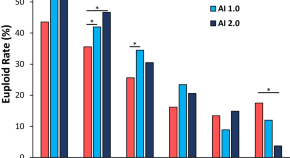
-
Proceedings of the first world conference on AI in fertility
Authors
- Carol Lynn Curchoe
- Content type: Commentary
- Published: 04 January 2023
- Pages: 215 - 222
-
Advancements in the future of automating micromanipulation techniques in the IVF laboratory using deep convolutional neural networks
Authors (first, second and last of 9)
- Victoria S. Jiang
- Deeksha Kartik
- Hadi Shafiee
- Content type: Assisted Reproduction Technologies
- Published: 31 December 2022
- Pages: 251 - 257
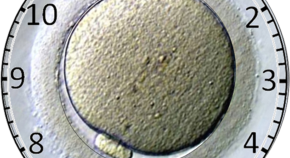
-
Looking with new eyes: advanced microscopy and artificial intelligence in reproductive medicine
Authors
- Mark E. Gill
- Alexander M. Quaas
- Content type: Review
- Published: 19 December 2022
- Pages: 235 - 239
-
The DIY IVF cycle—harnessing the power of deeptech to bring ART to the masses
Authors
- Lynae M. Brayboy
- Alexander M. Quaas
- Content type: Assisted Reproduction Technologies
- Open Access
- Published: 14 December 2022
- Pages: 259 - 263
-
Prediction of risk factors for first trimester pregnancy loss in frozen-thawed good-quality embryo transfer cycles using machine learning algorithms
Authors (first, second and last of 6)
- Gonul Ozer
- Aysu Akca
- Semra Kahraman
- Content type: Assisted Reproduction Technologies
- Published: 18 November 2022
- Pages: 279 - 288

-
Quality assurance (QA) for monitoring the performance of assisted reproductive technology (ART) staff using artificial intelligence (AI)
Authors (first, second and last of 8)
- Panagiotis Cherouveim
- Victoria S. Jiang
- Hadi Shafiee
- Content type: Assisted Reproduction Technologies
- Published: 14 November 2022
- Pages: 241 - 249
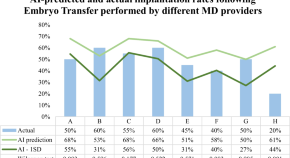
-
Embryo classification beyond pregnancy: early prediction of first trimester miscarriage using machine learning
Authors (first, second and last of 10)
- Tamar Amitai
- Yoav Kan-Tor
- Amnon Buxboim
- Content type: Embryo Biology
- Open Access
- Published: 04 October 2022
- Pages: 309 - 322

-
Meetings that matter: time to put artificial intelligence on the ART roadmap
Authors
- Carol Lynn Curchoe
- Content type: Commentary
- Published: 12 May 2022
- Pages: 1493 - 1496
-
Should there be an “AI” in TEAM? Embryologists selection of high implantation potential embryos improves with the aid of an artificial intelligence algorithm
Authors (first, second and last of 13)
- V. W. Fitz
- M. K. Kanakasabapathy
- H. Shafiee
- Content type: Assisted Reproduction Technologies
- Published: 17 September 2021
- Pages: 2663 - 2670

-
Trending in human ARTs: Jumping on the Artificial Intelligence and Machine Learning bandwagon
Authors
- David F. Albertini
- Content type: Commentary
- Published: 21 July 2021
- Pages: 1605 - 1606
-
Artificial intelligence—the future is now
Authors
- Mark P. Trolice
- Carol Curchoe
- Alexander M Quaas
- Content type: Opinion
- Published: 07 July 2021
- Pages: 1607 - 1612
-
Embryo selection with artificial intelligence: how to evaluate and compare methods?
Authors
- Mikkel Fly Kragh
- Henrik Karstoft
- Content type: Embryo Biology
- Open Access
- Published: 26 June 2021
- Pages: 1675 - 1689
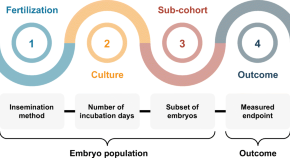
-
Can methods of artificial intelligence aid in optimizing patient selection in patients undergoing intrauterine inseminations?
Authors
- Nejc Kozar
- Vilma Kovač
- Milan Reljič
- Content type: Assisted Reproduction Technologies
- Open Access
- Published: 24 May 2021
- Pages: 1665 - 1673
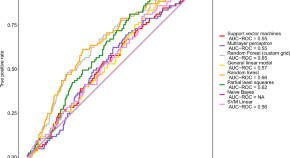
-
End-to-end deep learning for recognition of ploidy status using time-lapse videos
Authors (first, second and last of 10)
- Chun-I Lee
- Yan-Ru Su
- Mark Liu
- Content type: Assisted Reproduction Technologies
- Published: 22 May 2021
- Pages: 1655 - 1663
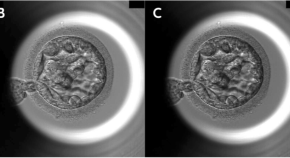
-
Clinical implementation of algorithm-based embryo selection is associated with improved pregnancy outcomes in single vitrified warmed euploid embryo transfers
Authors (first, second and last of 9)
- Jenna Friedenthal
- Carlos Hernandez-Nieto
- Alan Copperman
- Content type: Assisted Reproduction Technologies
- Published: 01 May 2021
- Pages: 1647 - 1653
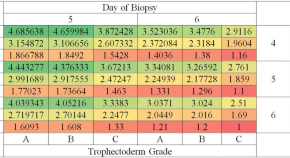
-
Deep learning early warning system for embryo culture conditions and embryologist performance in the ART laboratory
Authors (first, second and last of 10)
- Charles L. Bormann
- Carol Lynn Curchoe
- Hadi Shafiee
- Content type: Assisted Reproduction Technologies
- Published: 27 April 2021
- Pages: 1641 - 1646

-
Three ways of knowing: the integration of clinical expertise, evidence-based medicine, and artificial intelligence in assisted reproductive technologies
Authors
- Gerard Letterie
- Content type: Commentary
- Published: 19 April 2021
- Pages: 1617 - 1625

-
Review of computer vision application in in vitro fertilization: the application of deep learning-based computer vision technology in the world of IVF
Authors (first, second and last of 6)
- Claudio Michael Louis
- Alva Erwin
- Ivan Sini
- Content type: Review
- Published: 03 April 2021
- Pages: 1627 - 1639

-
The paper chase and the big data arms race
Authors
- Carol Lynn Curchoe
- Content type: Commentary
- Published: 13 March 2021
- Pages: 1613 - 1615
-
An artificial neural network for the prediction of assisted reproduction outcome
Authors
- Paraskevi Vogiatzi
- Abraham Pouliakis
- Charalampos Siristatidis
- Content type: Assisted Reproduction Technologies
- Published: 19 June 2019
- Pages: 1441 - 1448

-
Artificial intelligence and machine learning for human reproduction and embryology presented at ASRM and ESHRE 2018
Authors
- Carol Lynn Curchoe
- Charles L. Bormann
- Content type: Assisted Reproduction Technologies
- Published: 28 January 2019
- Pages: 591 - 600
-
Are computational applications the “crystal ball” in the IVF laboratory? The evolution from mathematics to artificial intelligence
Authors (first, second and last of 11)
- Mara Simopoulou
- Konstantinos Sfakianoudis
- Michael Koutsilieris
- Content type: Commentary
- Published: 27 July 2018
- Pages: 1545 - 1557
